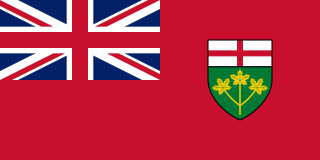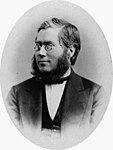
The Ontario New Democratic Party is a social-democratic political party in Ontario, Canada. The Ontario NDP, led by Andrea Horwath since March 2009, currently forms the Official Opposition in Ontario following the 2018 general election. It is a provincial section of the federal New Democratic Party. It was formed in October 1961 from the Co-operative Commonwealth Federation and the Ontario Federation of Labour (OFL).

The Canadian federal election of 1921 was held on December 6, 1921, to elect members of the House of Commons of Canada of the 14th Parliament of Canada. The Union government that had governed Canada through the First World War was defeated, and replaced by a Liberal government under the young leader William Lyon Mackenzie King. A new third party, the Progressive Party, won the second most seats in the election.

The 1892 United Kingdom general election was held from 4 July to 26 July 1892. It saw the Conservatives, led by Lord Salisbury, win the greatest number of seats, but not enough for an overall majority as William Ewart Gladstone's Liberals won many more seats than in the 1886 general election. The Liberal Unionists who had previously supported the Conservative government saw their vote and seat numbers go down.

The 1886 United Kingdom general election took place from 1 July to 27 July 1886. It resulted in a major reversal of the results of the 1885 election as the Conservatives, led by Lord Salisbury in an electoral pact with the breakaway Unionist wing of the Liberals led by Lord Hartington and Joseph Chamberlain. The new Liberal Unionist party gave the Conservatives their parliamentary majority but did not join them in a formal coalition.

The 1885 United Kingdom general election was held from 24 November to 18 December 1885. This was the first general election after an extension of the franchise and redistribution of seats. For the first time a majority of adult males could vote and most constituencies by law returned a single member to Parliament fulfilling one of the ideals of Chartism to provide direct single-member, single-electorate accountability. It saw the Liberals, led by William Ewart Gladstone, win the most seats, but not an overall majority. As the Irish Nationalists held the balance of power between them and the Conservatives who sat with an increasing number of allied Unionist MPs, this exacerbated divisions within the Liberals over Irish Home Rule and led to a Liberal split and another general election the following year.

The Canadian federal election of 1867, held from August 7 to September 20, was the first election for the new nation of Canada. It was held to elect members to the House of Commons of Canada, representing electoral districts in the provinces of Nova Scotia, New Brunswick, Ontario and Quebec in the 1st Parliament of Canada. The provinces of Manitoba (1870) and British Columbia (1871) were created during the term of the 1st Parliament of Canada and were not part of the Canadian federal election of 1867.

The Ontario Libertarian Party is a libertarian political party in the Canadian province of Ontario. It is one of five provincial parties in Ontario running enough candidates in 2018 to govern a majority. Founded in 1975 by Bruce Evoy, Vince Miller, and others, the party was inspired by the 1972 formation of the US Libertarian Party. The party is guided by a Statement of Principles and the philosophical ideas of Austrian School of Economics. It is influenced by authors and thinkers such as Jan Narveson and Murray Rothbard. The party's leader was Allen Small, who resigned in July 2018. Deputy Leader Rob Ferguson has taken over until the expected Convention in November of 2019.
The New Reform Party of Ontario was a minor provincial political party in Ontario, Canada, that promoted a populist, fiscally conservative, socially conservative, libertarian, and localist ideology.
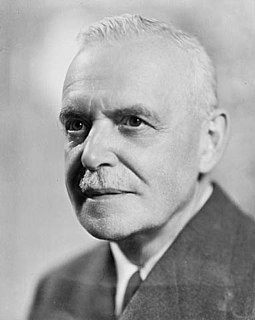
The Canadian federal election of 1949 was held on June 27 to elect members of the House of Commons of Canada of the 21st Parliament of Canada. It was the first election in Canada in almost thirty years in which the Liberal Party of Canada was not led by William Lyon Mackenzie King. King had retired in 1948, and was replaced as Liberal leader and Prime Minister by Louis St. Laurent. It was also the first federal election with Newfoundland voting, having joined Canada in March of that year, and the first election since 1904 in which the parts of the Northwest Territories were granted representation. The Liberal Party was re-elected with its fourth consecutive government, winning just under 50% of the vote. This victory was the largest majority in Canadian history to that point and remains, by any measure, the largest-ever majority won by the Liberal Party. As of 2017, it remains the third largest majority government in Canadian history.

The Canadian federal election of 1953 was held on August 10 to elect members of the House of Commons of Canada of the 22nd Parliament of Canada. Prime Minister Louis St. Laurent led his Liberal Party of Canada to its fifth consecutive majority government, although the party lost seats to the other parties.
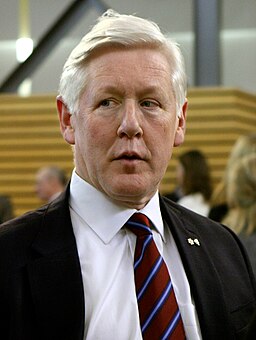
The Ontario general election of 1990 was held on September 6, 1990, to elect members of the 35th Legislative Assembly of the province of Ontario, Canada.

The Ontario general election of 1951 was held on November 22, 1951, to elect the 90 members of the 24th Legislative Assembly of Ontario of the Province of Ontario, Canada.
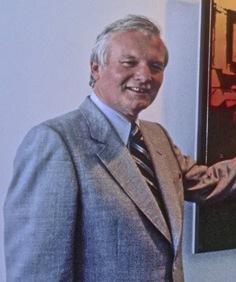
The Ontario general election of 1971 was held on October 21, 1971, to elect the 117 members of the 29th Legislative Assembly of Ontario of the Province of Ontario, Canada.

The Ontario general election of 1943 was held on August 4, 1943, to elect the 90 Members of the 21st Legislative Assembly of Ontario of the Province of Ontario, Canada.

The Ontario general election, 1867 was the first general election held in the newly created Province of Ontario, Canada. Previously, the territory was known as Canada West, a part of the Province of Canada. The election was held on September 3, 1867, to elect the 82 members of the 1st Legislative Assembly (MLAs). The dates of the election in 1867 varied from August 20 to September 26.

The Ontario general election of 1875 was the third general election held in the Province of Ontario, Canada. It was held on January 18, 1875, to elect the 88 Members of the 3rd Legislative Assembly of Ontario ("MLAs").

The Ontario general election, 1890 was the seventh general election held in the Province of Ontario, Canada. It was held on June 5, 1890, to elect the 91 Members of the 7th Legislative Assembly of Ontario ("MLAs").

The Ontario general election, 1919 was the 15th general election held in the Province of Ontario, Canada. It was held on October 20, 1919, to elect the 111 Members of the 15th Legislative Assembly of Ontario ("MLAs").
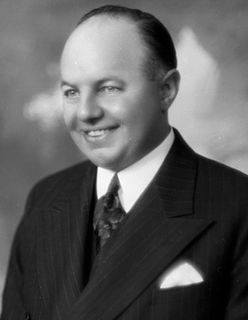
The Ontario general election, 1937 was held on October 6, 1937, to elect the 90 Members of the 20th Legislative Assembly of Ontario ("MLAs"). It was the 20th general election held in the Province of Ontario, Canada.

An Ontario general election was held on June 3, 1999, to elect members of the 37th Legislative Assembly of the Province of Ontario, Canada.
